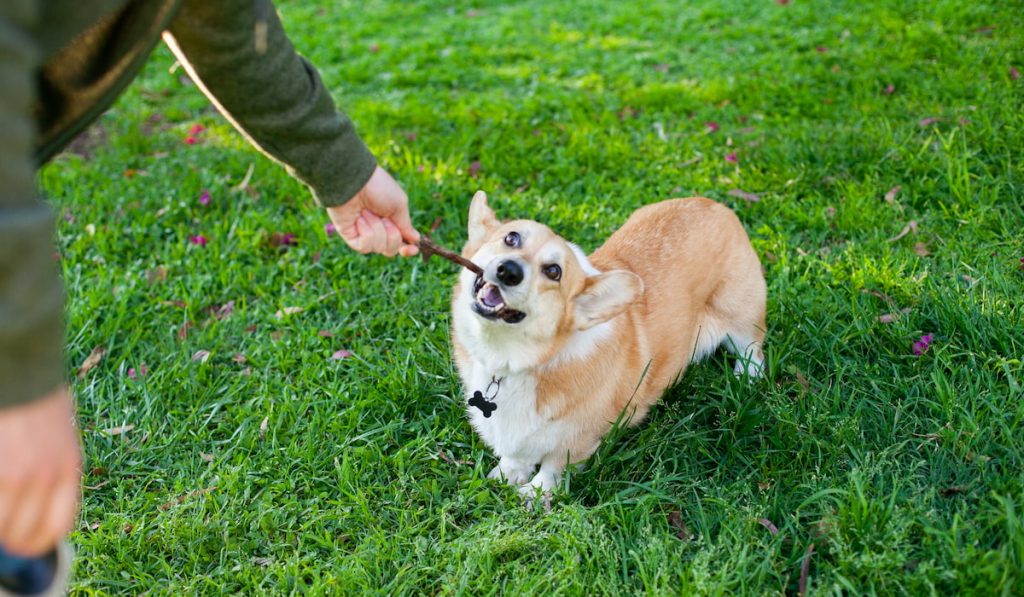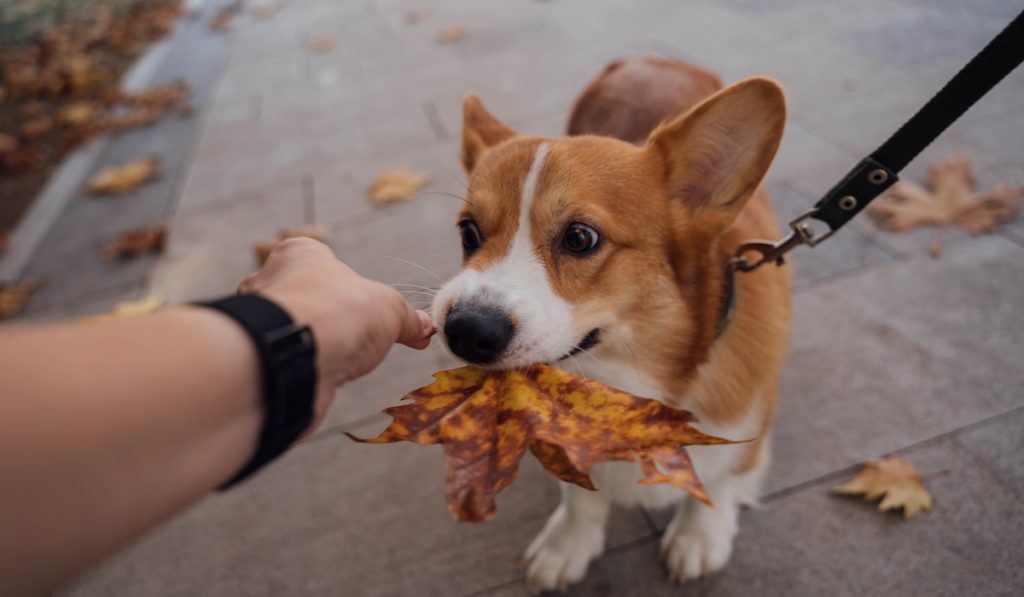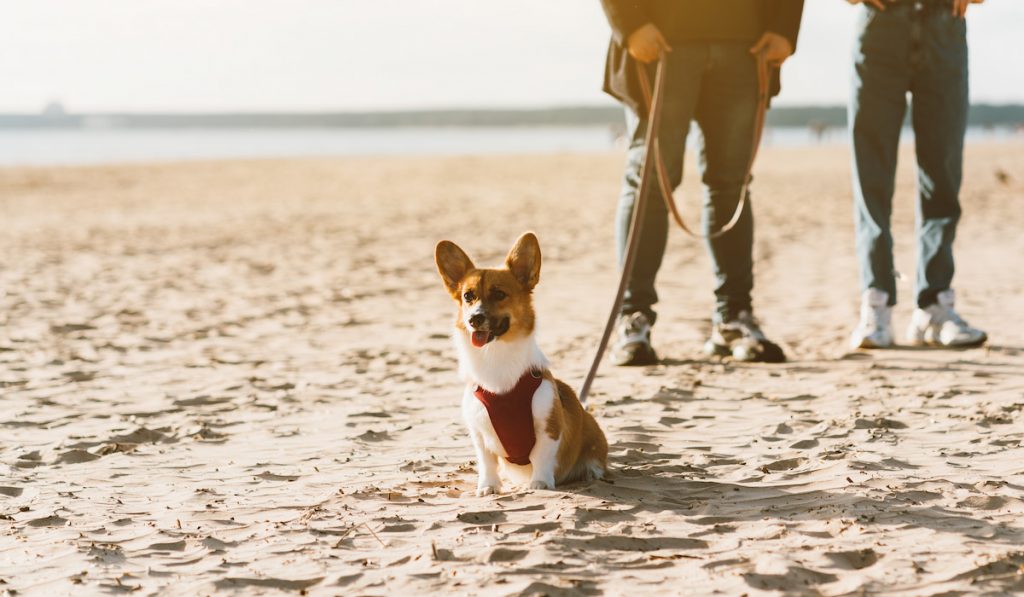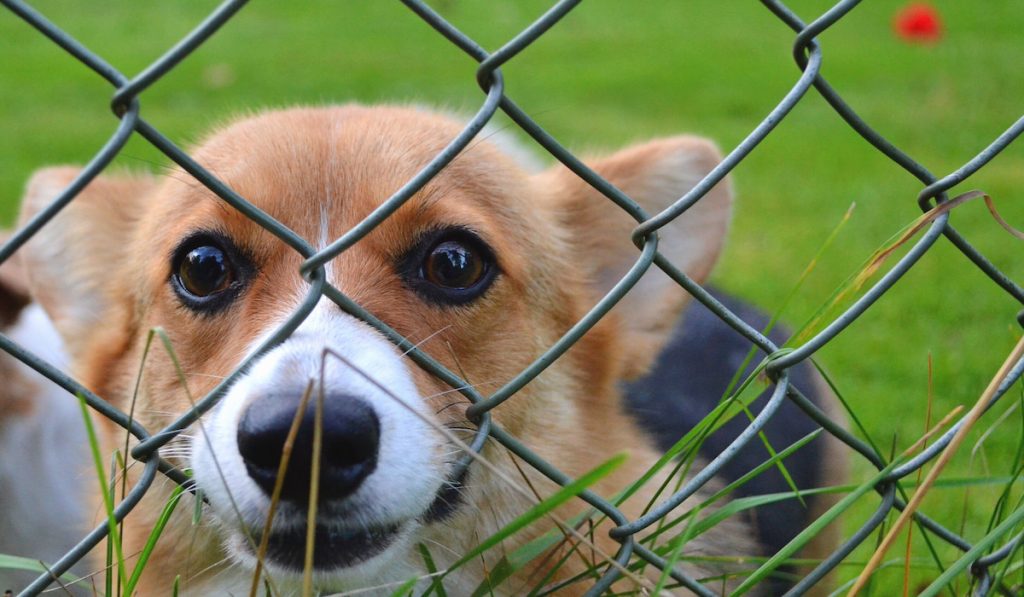If your dog ever bites, whether it’s a person or another dog, it’s an embarrassing experience that carries potential legal consequences. Dog bites are treated very seriously in most places and depending on where you live, you could face fines and stiffer penalties.
The best way to avoid all this, of course, is to train your dog to not bite before any bad behavior sets in.
If you’re a corgi parent worried about dog bites, you should first know that corgis are generally a very friendly and playful dog breed. If you socialize your puppy early and often, it greatly reduces the potential for bites or any other type of aggressive behavior.

You can typically spot the signs of biting early on, and with simple training, you can teach your dog what is expected so you avoid fights and any nips at the dog park.
We’ve put together this easy guide on how to train your dog not to bite. Following these steps will put you at ease and keep your dog happy and safe.
Dog Bites in the U.S.
Every year, millions of people are bitten by dogs across the world. Many of us carry the trauma of a dog bite our entire lives, and it affects how we interact with animals when we see them.
Have you ever been out on a walk and come across a dog that escaped from their backyard? If you were bitten as a kid, you probably seize up a bit and became nervous, wondering whether the dog will be friendly or come looking for trouble.
In the United States, many local governments take serious steps to prevent aggressive dog behavior and irresponsible owners. Some areas have little to no tolerance for dog bites, and there is a good chance you’ll end up in court and paying thousands of dollars in penalties should your dog bite someone’s hand, arm, or leg.

Steps to Get Your Dog to Not Bite
Puppies teethe and play a lot when they grow. Odds are that your puppy tries to clamp down and gives you some bites on your hand while you’re wrestling with them or they’re in the mood to play. This isn’t a guarantee that your dog is going to bite when they are fully grown, but you should take action as soon as possible to let them know what you expect.
Here are some steps to use to teach your dog that biting is not acceptable:
- Stop Playing When They Bite – A key aspect of any dog training is rewarding good behavior and not rewarding bad behavior. If you play with your Corgi puppy and they are nippy, stop playing with them and get up and move away.
Tell them no when they try to bite you so they know why you are getting up. Do it as soon as they try. When they play without biting, give them plenty of encouragement to let them know that they are exhibiting good social behaviors.
- Socialize Your Dog Early – To avoid any type of aggressive behavior around dogs and humans, you should socialize your corgi puppy from an early age. Take them to a dog park often. Stop and let them say hello to bigger dogs when you take them out for a while. Have people over to visit.
They need to know that people and all of the other dogs are not a threat. Socializing your puppy makes them comfortable in different environments, and you won’t have to lock them in the bathroom whenever you have guests over for dinner.

- Obedience Training – We’ve touched on training a bit already, but you should seek obedience training options if you feel like you need some extra help with a dog that’s inclined to bite. There are probably a lot of good options in your area, and they’ll work with you on teaching your corgi how to act and stop any biting habits.
- Be a Responsible Dog Owner – Any dog, when put in the wrong situation, can bite. It’s a defense mechanism even the friendliest dog will use if they feel threatened enough. Make sure you create an environment in which your corgi feels safe that won’t lead to biting.
This includes playing with children who are not part of the family (that they haven’t spent a lot of time with yet) and other unfamiliar dogs in tight spaces.
- Consider Spaying or Neutering Your Dog – Spaying or neutering a dog isn’t a guarantee that they won’t bite or act aggressively. It does, however, temper aggressive behavior. It’s not for everyone, but it is an option to consider if you’re worried about aggression.
- Growling as a Warning Sign – People feel uncomfortable when their dogs growl. Certainly, if you’re the object of the dog growling, you feel a bit wary too. Still, don’t be in such a rush to silence your dog’s growling because you feel embarrassed.
Instead, take your corgi’s growling as a sign they feel threatened and get them out of that situation to avoid any escalation. Learn to watch your dog’s body language and read other signs to prevent biting.
- Encourage Good Behavior – Whenever your corgi acts well or responds to new situations the way you want, make sure you let them know! Encourage them, pet them, and give them treats to let them know they did a fantastic job. They will model that behavior going forward, and biting becomes less of a worry.
Positive reinforcement is a much more effective means of dog training than yelling, any type of hitting or shaming. Reward the positive instead of punishing the negative.

Final Thoughts
Everyone worries about their dog biting someone or another dog. It’s part of the package of dog ownership.
It’s hard to know how dogs will react when they first meet each other, so you, as the dog parent, need to be ready to intercede and keep everyone cool.
Time and repetition will help your dog know that biting isn’t OK, that every other person or dog isn’t a threat, and they don’t need to be afraid whenever you’re around.
